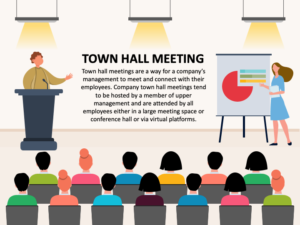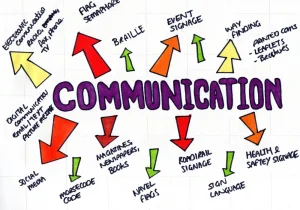Job insecurity and Communication Styles.
Or Job Insecurity my thoughts and experiences
Job Insecurity and Communication Styles, or job insecurity and the way we communicate.
What is job security, yes, I know that I have posted a blog with this title before, but recent times have compelled me to make some jottings, that I feel are relevant in these turbulent times.
I am sure readers like me have seen computerised technologies change the way we work, maintain our households, socialise and communicate, most of the time for the better, but this blog is not necessarily about technological automation, but communications, and how they can impact job insecurity.

I have worked in many different industries, and sizes of organisations from the multinational to the small and startup, and I have drawn the following conclusions.
The first is, that technology can impact how secure an individual may feel about their job and their continued employment when new technologies are introduced into the workplace.
The second is that general or non-specific communications can also impact how secure an individual may feel about their ongoing employment.

So what am I discussing here?
Communications within an organisation could normally be categorised into two channels these being the “Official” and the “Unofficial”.
The official communications channel could be labelled as the information that any corporation wishes to provide to its employees, about how the organisation is doing, and changes within the organisation, through to the new policies and procedures that have to be followed.
This official information can be provided through multiple different methods from the event days or town hall presentations, or the official emails that can be sent.

The official communication lines are normally very controlled information channels, with the wording of any email, or presentation being refined to remove all unofficial information or remove the possibility of any ambiguity.

However, in contrast, to the official communications channel is the unofficial communication channel, where the information is not always so refined, could be open to ambiguity, perceptions, and feelings, and can take place around the water cooler or coffee machine or, even in meetings where the official subjects are covered, and the conversation turns to what is happening within the organisation.
We communicate through many means, not just the spoken, or written word, but through the words we use and do not use, the pauses, the voice inflections, facial expressions, and body language, to name a few.

It is generally considered we gain more information when having a face-to-face discussion, than we do when talking on the telephone, or via a video call.
Through face-to-face conversations, we hear the words that are spoken, listen for the words that are not spoken, hear the voice inflexions, and see the facial expressions, and body language, and all of these enable both participants of the conversation to gain more information than would be the case if the conversation was being held over the telephone or video call.
So, when in a video conference or on the telephone, both participants will concentrate more on what can be seen of the other participant, and on the words that are spoken, the gaps or pauses, and the inflexions that could be considered as highlighting some of the spoken words.
So, what is the connection between this and job insecurity? More than you may think.
Well, as I have suggested the “official” channels of communication, the information that is provided, could be seen as very sterilised, a matter of fact, and to the point, with the presenters or the written words containing no additional information that would normally be receive through the “unofficial” channels.
Therefore reducing any ambiguity, keeping the information provided on point, and clinical.
However, as has been suggested unofficial channels do not have that structure, and the words that are used, the facial expressions and body language may offer different meanings to some of the words spoken, and therefore allow ambiguity or alternative meanings to be derived.
Let me give you an example.
I recently viewed a conversation with a senior executive within an organisation who was offering information about the current state of the organisation. He was promoting a secure job status to a new employee, mainly focusing on the larger contracts that were underway and offering words of reassurance, that there was not going to be an issue should the organisation lose one of the contracts.

This conversation was taking place over video conferencing, and after the official agenda had been completed, the manager considered that the subordinate may need some reassurance about the state and future of the organisational, due to the subordinate being present at some meetings where information about one of those contracts had been given, that was not positive.
However, after spending some little time offering these words of reassurance, that the subordinates’ job was secure, a very long pause occurred, where the executive turned their head and added a single statement, that there was plenty of money in the bank available should this not be the case.

So what is wrong with that, well at face value nothing except, why did the executive feel the need to add that additional statement about monies in the bank?
Was the pause because they thought they had not communicated their point effectively enough? or was it that the senior executive felt they had made an error starting the whole conversation in the first place?
Or was it to reassure themselves, as well as the subordinate?
When asked the subordinate who held an insecure view of the organisation before the meeting, and therefore was feeling that their job was not secure, held a stronger view that their job was even less secure after the meeting.

So why should the subordinate hold this view?
Going back to the information that is gathered during a conversation, in this case, it would fall into the unofficial category of communication, in that it was held during a meeting but after the official agenda had been completed.
It should be pointed out here that the source of the job insecurity was economic and not technological automation, however, communications are a key aspect of how employees are given information, regardless of whether it is “Official” or “Unofficial” both of them need to be accounted for during a change or expected change.
So why did the subordinate have this heightened view of job insecurity after the meeting?
The subordinate had collected information from previous meetings and other sources, which had started to unsettle the subordinate.
This conversation of the reassurance did not complete the tasks the executive had hoped, not because they did not explain the situation well, or say the right words, but because they paused and added the statement as an afterthought.
This statement would not have been in the official communications channel, and because it was added after a pause, makes It look like it was an afterthought, which shows the executive had not thought through what they were trying to say.
So, in conclusion
Communication could be considered an individualistic experience. We have all misunderstood people or misheard someone when they are talking with us.
However, we all read the people we are talking with looking to see if they are not telling the truth, or have alternative motives, and so it is not what is being said, it is what is not being said, or how it is said, that becomes as important and the words themselves.
Let me say that again it is not always the words that are spoken that are important, it is the pauses, the inflexions, and the body language, these all either corroborate or in call into question what is being said.
So why did this manager fail in their objective to offer reassurance, well it could be considered the conversation was unplanned, and therefore they were unprepared, it could also be that the executive was not experienced in managing people.
I have my own theories regarding this.
So, what can be drawn from this experience, communications can impact job insecurity, and so drawing this blog back to the normal subjects I cover, communicating about new technologies, changes to an employee’s tasks or what they are expected to produce if it is not done write can negatively impact the employee and in turn the organisation.
Do not doubt the power of communicating! and especially do not doubt how those communications can increase or decrease job insecurity.
#communications; #Jobinsecurity; #behaviours; #changemanagment; #technologythreat




